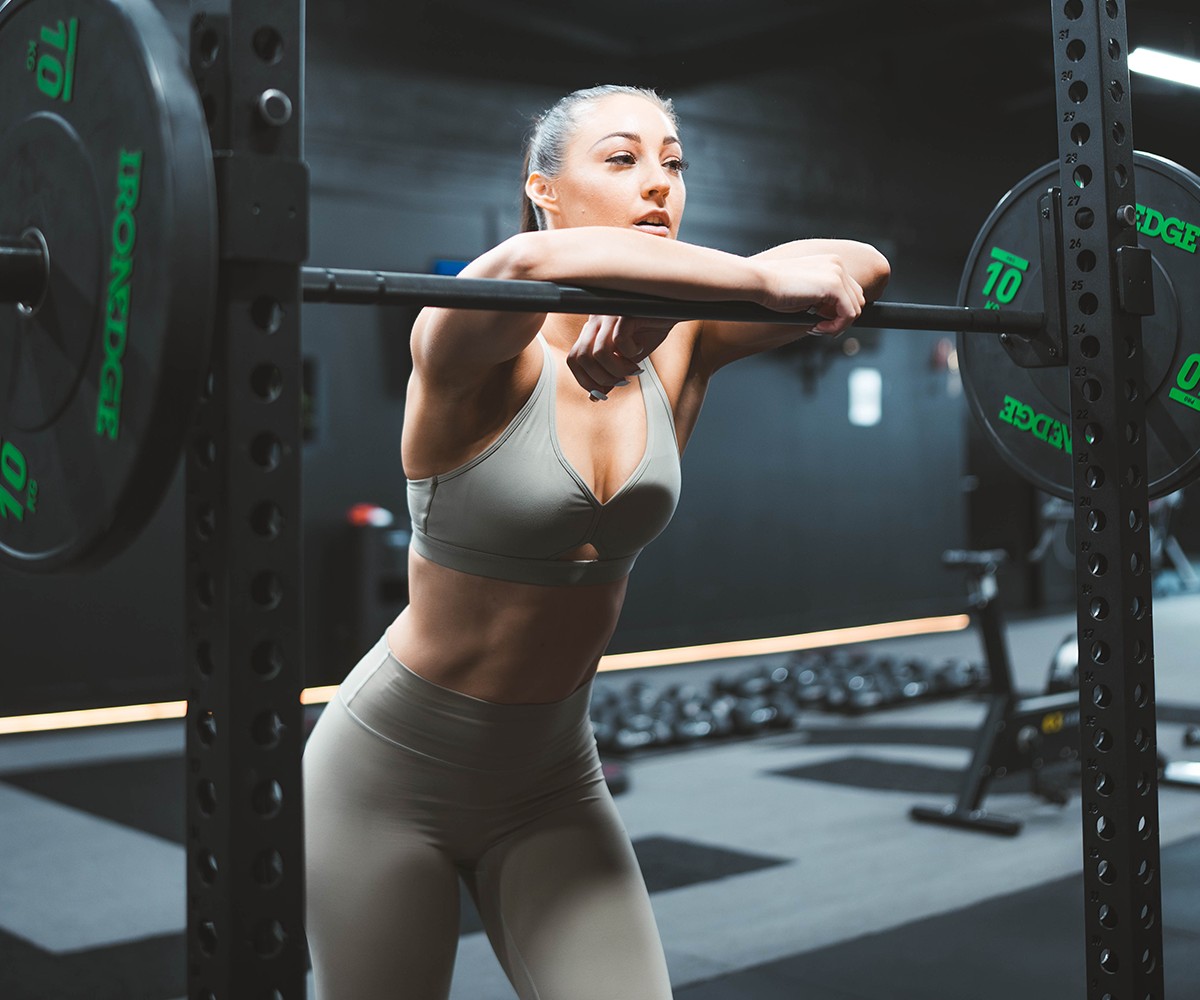Discover How Turkesterone Can Aid Your Gains!

A sports supplement that can help decrease fatigue and speed up recovery? Say less.
Turkesterone is an ingredient and supplement that’s gaining popularity in the market. But what is turkesterone, and where does it come from?
It’s a concentrated type of ecdysteroid (also known as a phytoecdysteroid), a compound found naturally in some plants and insects. Ecdysteroids have both adaptogenic and anabolic effects, so they’re often used to make supplements that help boost muscle growth and athletic performance.
Unlike other ecdysteroids, Turkesterone isn’t found in high levels in everyday food but naturally occurs in plants that look like thistles, which grow across Central Asia. Studies suggest Turkesterone’s potency is stronger than other ecdysteroid types, especially regarding its impact on muscle building.
Turkesterone Benefits
Turkesterone for muscle mass
Scientific research links Turkesterone to increasing muscle growth and the muscle-to-fat ratio. It’s also suggested that it can boost metabolism and help reduce fat.
Turkesterone to boost athletic performance
Studies suggest ecdysteroids increase ATP synthesis, which helps power muscles, prevent feelings of fatigue, and improve endurance. Increased ATP synthesis can lead to more intense workouts and boost stamina and strength. Anecdotal evidence from Turkesterone users also suggests it can help improve the ability to lift more weight and recover more quickly from tough workouts.
Turkesterone for muscle recovery
Studies on animals have shown that Turkesterone can help repair muscle fibres that have been broken down during a workout and increase the concentration of glycogen, which can help remove lactic acid from the muscles and support recovery. Ecdysteroids like Turkesterone have been found to increase protein synthesis by up to 20%, which is likely to help improve post-exercise recovery.

Is Turkesterone ‘natural testosterone’?
Turkesterone has a chemical structure similar to androgens, including testosterone, which can aid in promoting muscle growth. Some studies suggest evidence that a Turkesterone supplement can produce similar results to androgenic steroid use. Research suggests a Turkesterone supplement can help maintain normal testosterone levels – but testosterone is not considered an artificial hormone.
How much Turkesterone should you take? The appropriate amount of Turkesterone to help you gain muscle depends on several personal factors – it’s highly recommended that you discuss it with a healthcare professional before adding it to your routine.

Ebony is our resident wordsmith here at Bulk! A reforming journalist and a graduate of the University of Tasmania, she's our resident copywriter, cat mum, pilates princess and (self appointed) Chief Swiftie!
More about Ebony AbblittReferences:
- Isenmann, E., Ambrosio, G., Joseph, J.F., Mazzarino, M., de la Torre, X., Zimmer, P., Kazlauskas, R., Goebel, C., Botrè, F., Diel, P. and Parr, M.K. (2019). Ecdysteroids as non-conventional anabolic agent: performance enhancement by ecdysterone supplementation in humans. Archives of Toxicology, 93(7), pp.1807–1816. doi: https://doi.org/10.1007/s00204-019-02490-x.
- Guibout, L., Mamadalieva, N.Z., Balducci, C., Girault, J.-P. and Lafont, R. (2015). The minor ecdysteroids from Ajuga turkestanica. Phytochemical Analysis, 26(5), pp.293–300. doi: https://doi.org/10.1002/pca.2563.
- Das, N., Mishra, S.K., Bishayee, A., Ali, E.S. and Bishayee, A. (2021). The phytochemical, biological, and medicinal attributes of phytoecdysteroids: An updated review. Acta Pharmaceutica Sinica B, [online] 11(7), pp.1740–1766. doi: https://doi.org/10.1016/j.apsb.2020.10.012.
- Isenmann, E., Ambrosio, G., Joseph, J.F., Mazzarino, M., de la Torre, X., Zimmer, P., Kazlauskas, R., Goebel, C., Botrè, F., Diel, P. and Parr, M.K. (2019). Ecdysteroids as non-conventional anabolic agent: performance enhancement by ecdysterone supplementation in humans. Archives of Toxicology, 93(7), pp.1807–1816. doi: https://doi.org/10.1007/s00204-019-02490-x.
- Parr, M., Botrè, F., Naß, A., Hengevoss, J., Diel, P. and Wolber, G. (2014). Ecdysteroids: A novel class of anabolic agents? Biology of Sport, [online] 32(2), pp.169–173. doi: https://doi.org/10.5604/20831862.1144420.
- Martins, J.P., Silva, L.C., Nunes, M.S., Rübensam, G., Oliveira, J.R., Silva, R.B.M. and Campos, M.M. (2021). Combined Effects of Exercise and Phytoanabolic Extracts in Castrated Male and Female Mice. Nutrients, 13(4), pp.1177–1177. doi: https://doi.org/10.3390/nu13041177.
- Gorelick-Feldman, J., MacLean, D., Ilic, N., Poulev, A., Lila, M.A., Cheng, D. and Raskin, I. (2008). Phytoecdysteroids Increase Protein Synthesis in Skeletal Muscle Cells. Journal of Agricultural and Food Chemistry, 56(10), pp.3532–3537. doi: https://doi.org/10.1021/jf073059z.




























